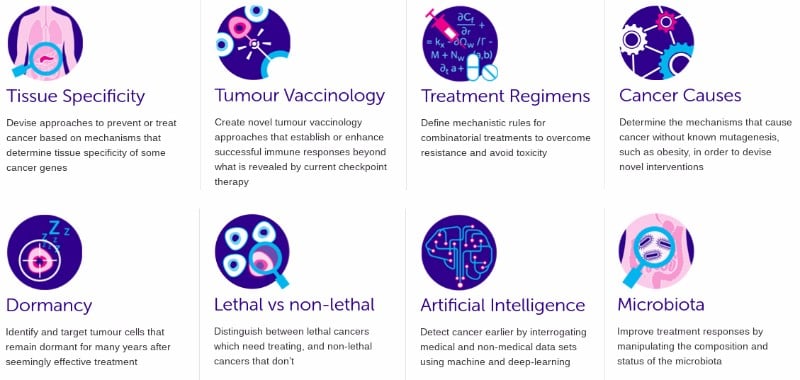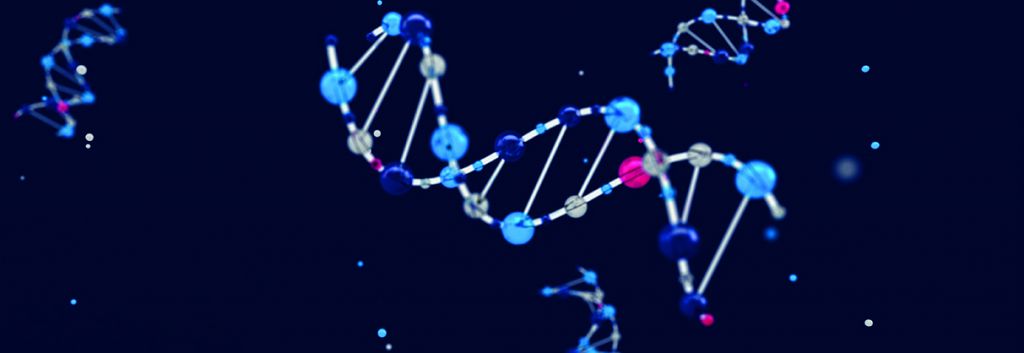Cancer Research UK is taking applications for £20M prizes from research groups worldwide that want to solve the biggest challenges in cancer research.
Cancer Research UK is launching today its second round of the Grand Challenge to tear down some of the biggest barriers to the advancement of cancer therapy. The charity will shortlist the most promising teams and projects and provide them with seed funding to work further on their proposals. The winning teams will then be awarded up to £20M each over 5 years to conduct their research projects.
Researchers worldwide have 6 months to prepare their applications for this second edition, in which the list of challenges is growing from seven to eight. This year’s challenges have been updated to reflect new opportunities that arise with the rapid developments in the oncology field. For example, they now include two very novel areas of research that are rapidly invading all life science fields, artificial intelligence and the microbiome.

For a biological process as complex as cancer, AI could provide new insights into the relationship between multiple markers and help design drugs. Companies like Exscientia and BenevolentBio are already working on it. For its part, the relatively recent discovery of the multiple implications of the microbiome in human health has sparked research into how the microbiome relates to cancer, with biotechs including Enterome or MaaT Pharma running clinical trials to test new approaches to treating cancer.
In the first edition last year, Cancer Research UK shortlisted nine teams out of 56 and awarded the £20M funding to four of them. The previous Grand Challenge awards went to a project to discover the unknown causes of 25 well-known mutation fingerprints, another to use virtual reality to create accurate 3D tumor models for doctors and researchers, a third to predict the development of breast cancer, and the fourth to draw a detailed map of tumor metabolism.
With so many new exciting areas of research emerging, I can’t wait to January to see which projects get shortlisted!
Images via Cancer Research UK





